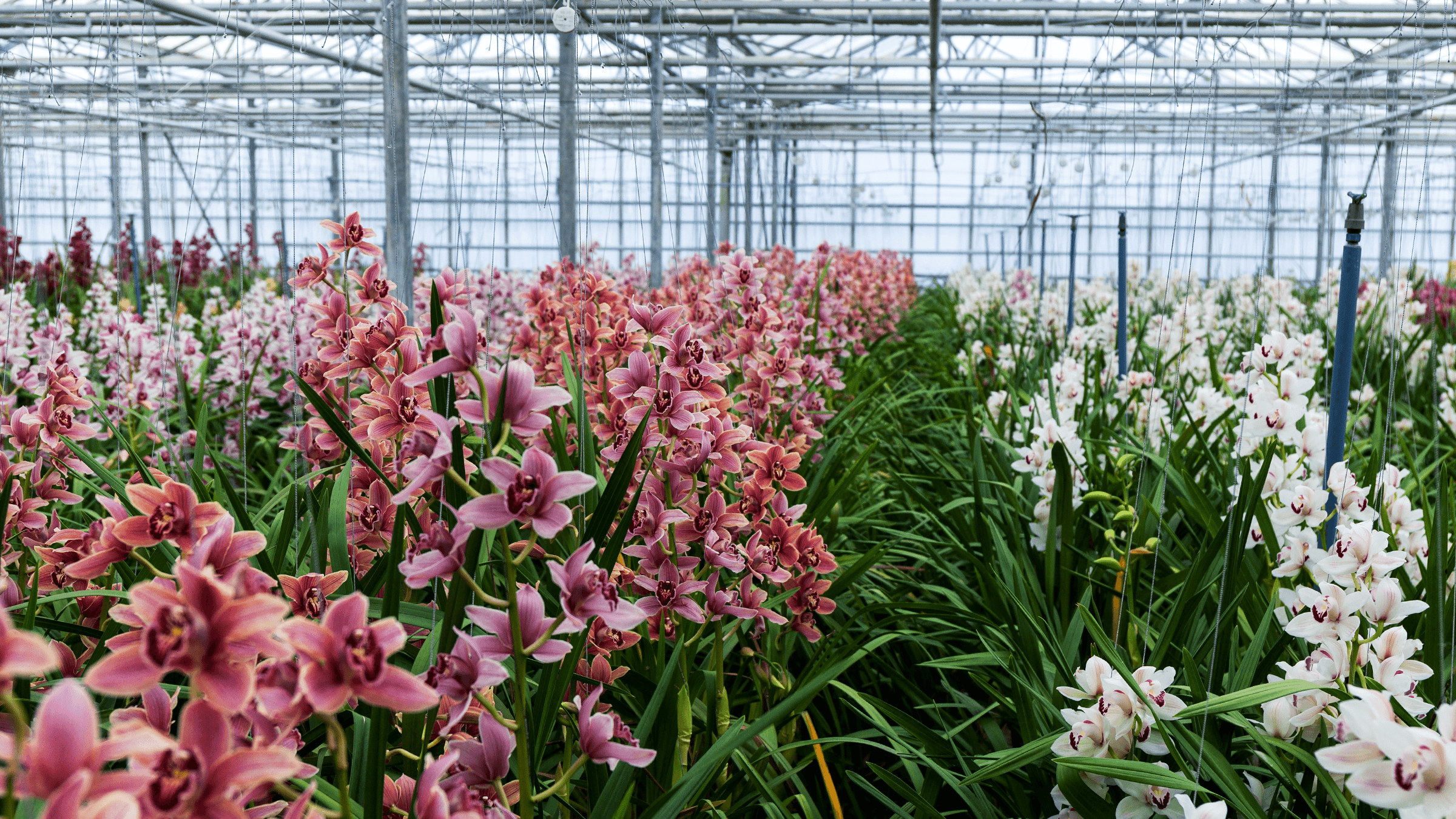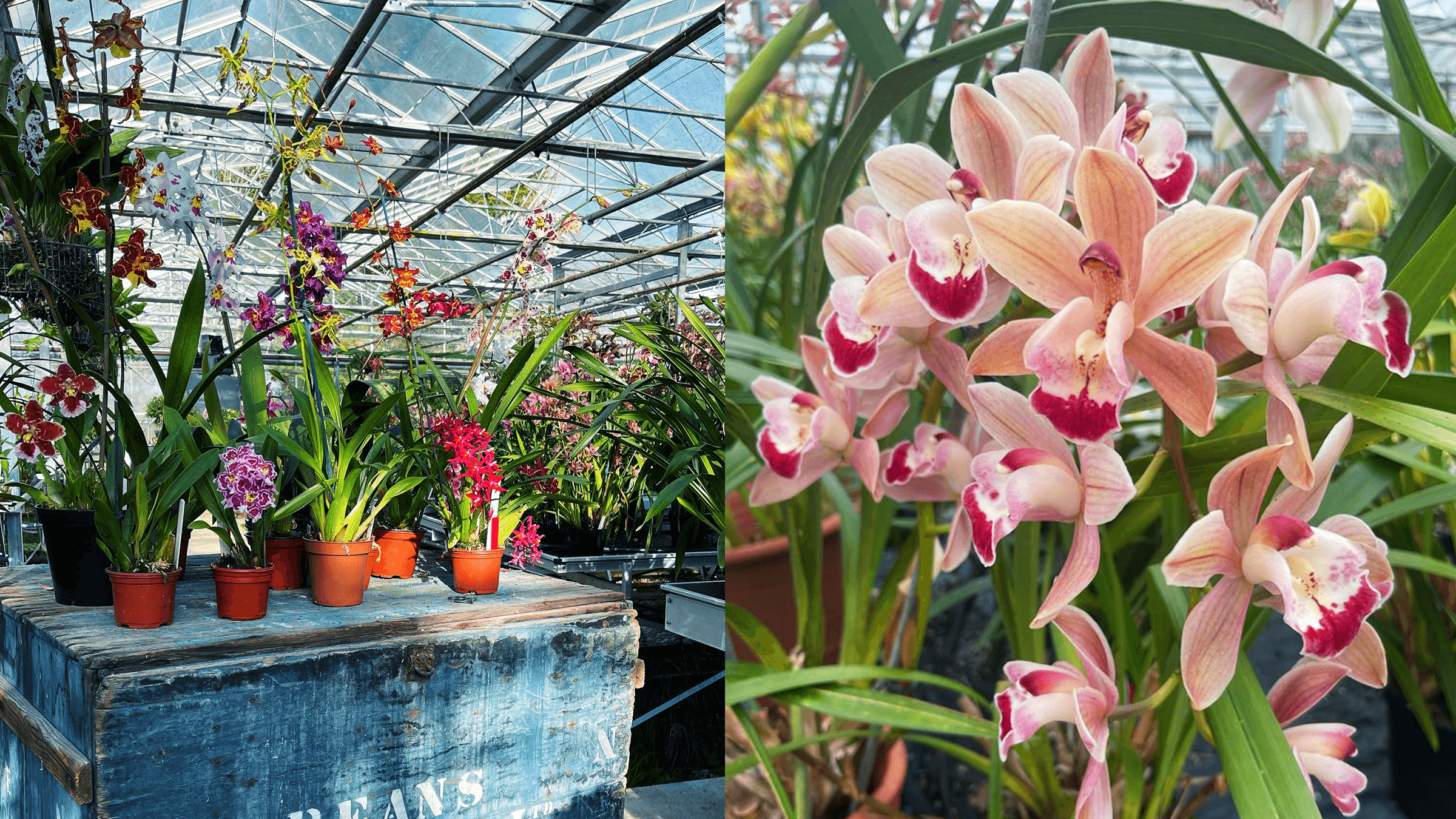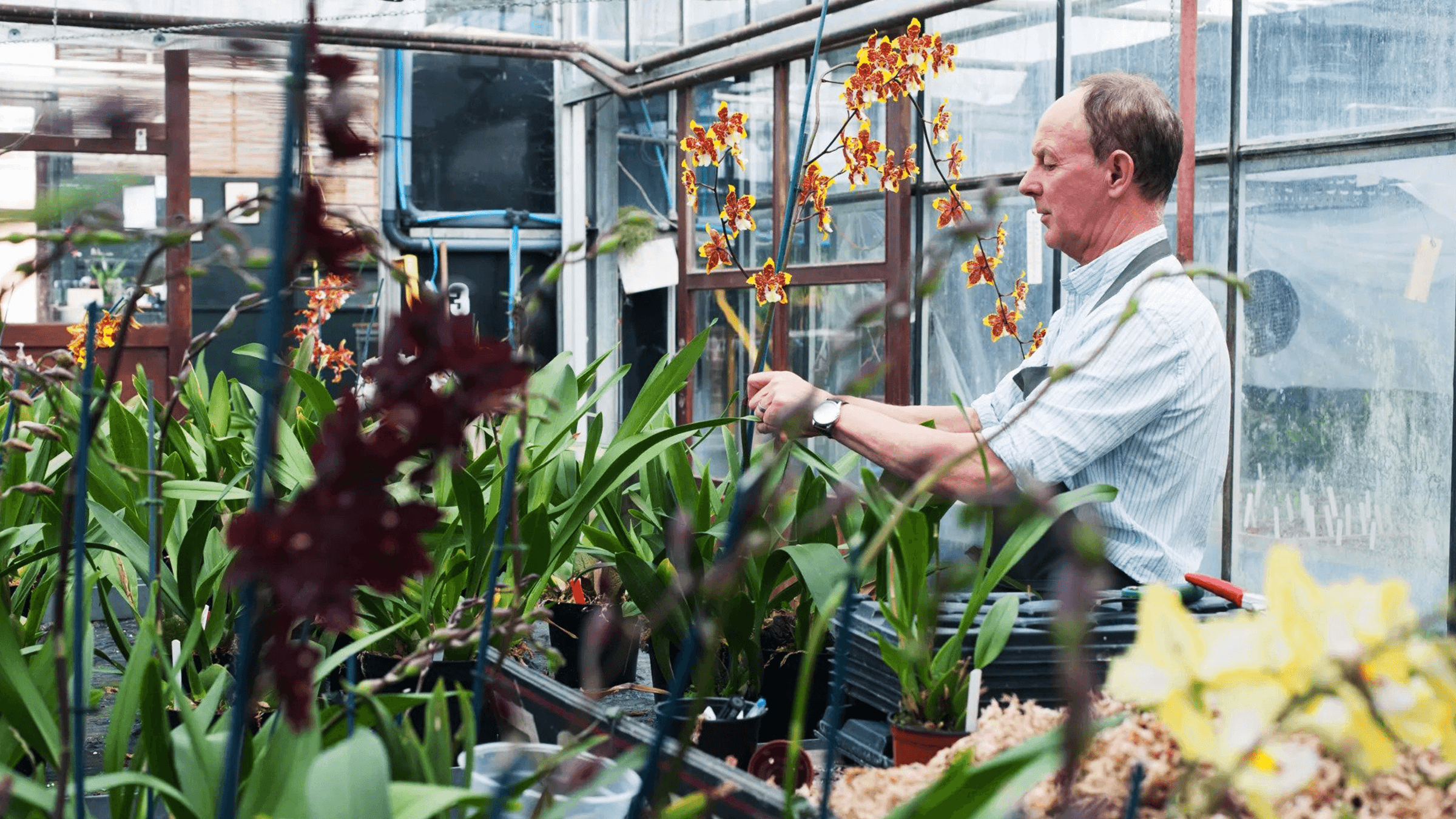As a student, I met the ceramic artist Hylton Nel in my home town of Port Elizabeth. Decades later, I have a vast collection of his work and we’ve a long-established friendship. Kim Jones, Creative Director at Fendi and Dior Mens, is too a collector of his work and arranged for Hylton to put on an exhibition at Charleston, the Bloomsbury house near Lewes in Sussex. “This plate is what I have to say” is a show of 200 plates which look splendid in the barn galleries on the farmland behind the house. It opened last month, and with Hylton, we went for the opening and a dinner in the kitchen in the house where Vanessa Bell, Duncan Grant and Virginia Woolf once ate.
Being in the area, I decided to take Hylton – who is a master gardener but lives in arid, semi-desert in the Western Cape – to visit Martin and Rose Armstrong who live nearby on their farm. Their farm is like something from a Gainsborough painting, but really I wanted to show Hylton the orchid nursery, McBean’s. Martin (unbeknownst to Rose) sends me an orchid once a year!
The story of how Rose and her husband came to own McBean’s in 2014 is a serendipitous one. “It was an accident really,” she told me. “I happened to visit the day before the nursery was due to close, to get a present for a friend. I got chatting to the boys working there, and then to the owners, and it became quite an emotional moment. Before I knew it, we’d agreed to take it on. One thing led to another and we found ourselves with half a million orchids! It seemed like such a deep shame to let such an iconic brand die after 140 years.”
The McBean’s brand is certainly central to England’s horticultural heritage. The nursery was established in 1879 by James McBean, and in its heyday was at the forefront of the UK horticulture scene. Rose tells me that both of her grandparents used to visit McBean’s on an annual basis in the forties and fifties to buy their orchids. “It was a real rite of passage,” she said. “That’s just what you did.” Over the years, the nursery has won more than seventy gold awards at the Chelsea Flower Show, and has become known for supplying the Royal Household’s orchids.

Today, Rose sees herself as the caretaker of this legacy. McBean’s is home to the finest collection of Cymbidium & Oncidium orchids in the world. Open two days a week for customers, the nursery brings in revenue by dividing plants – a process which takes more than four years – and selling them direct to consumers in-person and online.
“When I used to visit, there was a door that said ‘staff only – do not pass’,” Rose recalled when we spoke. “And through that door you’d see what looked like miles and miles of colourful, unusual, beautiful plants that weren’t in the shop. I’d always wanted to get to the other side of that door, and now I am.”
But on the other side, things aren’t always easy. Brexit has placed major restrictions on importing and exporting flowers, and the cost of heating the greenhouse has become difficult to sustain. When they took on the nursery, there were three working greenhouses. Now, there is one glass orchid house in operation, and another is used as a studio by the lighting and furniture designer Tom Dixon. There is a ceramic artist working there making ceramics out of clay and bacteria that does not require a kiln. Two years ago, one of the structures was turned into a restaurant led by chef Richard Blackwell. But times are tough. Rose told me that last year she bought enough oil to heat one greenhouse for a week, and it cost her £5,000. The next day, the price of the oil had gone up to £17,000.
“Nobody grows things in England anymore. If things carry on this way, we’re going to be left with ‘semi-skimmed’ flowers: mass-produced plants grown abroad.” – Rose Armstrong, Co-Owner, McBean’s Orchids.
While the past few years have presented significant challenges, British horticulture has been in decline for decades. In the 70s, two of the three major orchid nurseries (Nineteen Greenhouses and Charlesworth’s) shut up shop, and now McBean’s is the last major orchid grower in the whole of the UK. Today, Rose tends to think of McBean’s as a unique collection of beautiful plants, rather than a business, and she is disheartened by the state of British horticulture: “The British invented gardening, and now you can’t find people with the knowledge or the mindset to look after plants, especially orchids which require a specific skillset. Nobody grows things in England anymore. If things carry on this way, we’re going to be left with ‘semi-skimmed’ flowers: mass-produced plants grown abroad.”

Encouragingly, there are pockets of exciting things happening in the UK. The Land Gardeners – set up by Henrietta Courtauld and Bridget Elworthy – is one of the few organisations growing flowers in Britain. Henrietta and Bridget have revived the tradition to produce seasonal flowers for use in decoration, design and events, powered by their ‘climate compost’ product – soil enriched with microbes to support stronger, healthier, more resilient plants.
I assumed our visit to McBean’s would be short. But we spent hours with Rose wandering round the greenhouse, and I came away feeling that yet another exportable British industry has fallen to the wayside. Growers have not been offered support, especially when you compare us to the Netherlands where the export of flowers is one of the country’s most important.
In the meantime, the orchids that I bought on the day are looking magnificent, and Rose is happy for me to send them back to McBean’s to be looked after until next year when they will hopefully flourish and flower again.
Quick-fire questions:
Where did you grow up? Let’s just say in England! I moved around a lot when I was a child. Now I live in East Sussex.
Family? I’m married to Martin. Everyone who knows him calls him Stretch, as he is 6’7. I have four really tall, grown up sons.
Favourite book/film? Book is Wuthering Heights, film is The English Patient.
Who are your role models? I think I’m something of a lone wolf. My husband is the wind beneath my wings! He gives me the freedom and confidence to do stupid things.
What do you want your legacy to be? I’m not good on legacy, I think you have to enjoy it while you’re here… Only men think they need a legacy!
Any gardening tips?! Rainwater is the number one tip for all of your houseplants – never water your indoor plants with stuff from the tap. And do not water your orchids too frequently.
moira.benigson@thembsgroup.co.uk | @TheMBSGroup
In memory of Phil Dickinson, Lululemon Global Creative Director
The MBS Group were deeply saddened to hear of the death of Phil Dickinson, Global Creative Director at Lululemon. Phil, who joined the activewear brand in July, spent fifteen years at Nike before starting his own creative agency, Some Ideas, in 2013. Prior to Lululemon, Phil served as Creative Director at Superdry. Our thoughts are with Phil’s wife Steph, and their two children.








